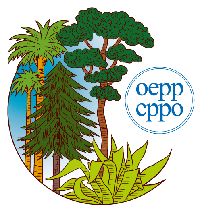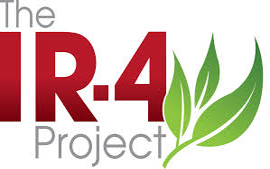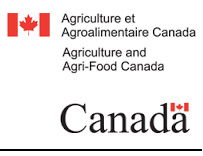Key Actors and Partners in Minor Uses of Plant Production Products
European Commission (EC)
- Website: EC Plant Protection Products
The Directorate-General for Health and Food Safety (DG SANTE) aims to ensure Europe is a healthier and safer place, with a focus on protecting human and animal health, as well as the environment. A key responsibility includes regulating the placement of plant protection products on the European market, guided by Regulation (EC) No /2009.
The economic incentive for industry to apply for an authorisation is limited for certain uses, especially minor uses. In order to ensure that diversification of agriculture and horticulture is not jeopardised by the lack of availability of effective plant protection solutions Regulation (EC) No 1107/2009 provides for specific rules for minor uses.
- Specific procedures for minor use applications are outlined on the EC Minor Use Procedure page.


European and Mediterranean Plant Protection Organisation (EPPO)
- Website: EPPO Homepage
EPPO is an inter-Governmental organisation, recognized by the Food and Agricultural Organisation of the United Nations (FAO) as the Regional Plant Protection Organization for Europe, which has carried out work in support of minor uses since 1996.
- In 2014 EPPO published a Standard PP 1/224 (2) describing the principles for determining the requirements for efficacy evaluation for minor uses of plant protection products in order to simplify the registration process.
-
In 2024 EPPO launched a database for PPP Data Extrapolation.
The database provides detailed lists of acceptable extrapolations, for regulatory authorities and applicants, in the context of the registration of plant protection products for minor uses.
The database should be used in conjunction with the EPPO Standard PP 1/257 Efficacy and crop safety extrapolations for minor uses.
All extrapolations should be viewed on a case-by-case basis and it is important to ensure that expert judgment and regulatory experience are employed when using the database.
Database Link: EPPO Extrapolation Database.
Organisation for Economic Cooperation and Development (OECD)
- Website: OECD Homepage
In 1961 the Organisation for Economic Cooperation and Development (OECD) was established with a trans-Atlantic and then global reach. Today the OECD has 34 member countries. More than 70 developing and transition economies are engaged in working relationships with the OECD.
OECD is a forum in which governments work together to address the economic, social and environmental challenges of interdependence and globalisation. OECD is also a provider of comparative data, analysis and forecasts to underpin multilateral cooperation.
The OECD works on agricultural pesticides (i.e. chemical and biological pesticides), aims to help member countries improve the efficiency of pesticide control, shares the work of pesticide registration and re-registration, minimises non-tariff trade barriers and reduces risks to human health and the environment resulting from their use.
OECD Minor Uses Guidance Documents:
- 2023: Guidance Document on Addressing Minor Uses. OECD Guidance Document on Addressing Minor Uses
- 2020: Guidance Document on the Exchange and Use of International Efficacy & Crop Safety Data. Guidance Document on the Exchange and Use of International Efficacy & Crop Safety Data
These documents aim to enhance international collaboration, streamline minor use applications, and reduce trade barriers.


IR-4 Project
- Website: IR-4 Project Homepage
The lack of crop protection products for specialty crops and minor uses on major crops is called the “Minor Use Problem” and the IR-4 Project was formed to solve this problem for US growers. Since 1963, the IR-4 Project has been the major factor in facilitating the registration of crop protection tools for U.S. specialty crop growers. The National Headquarters and overall program coordination are placed on the campus of Rutgers’ University (New Jersey, USA).
The Mission Statement for the IR-4 Project is simply to; “Facilitate Registration of Sustainable Pest Management Technology for Specialty Crops and Minor Uses”. From a humble beginning in 1963 with only two staff members and a $25,000 budget to a staff of 125 full time equivalent members and a budget of over $37 million, the IR-4 Project has made a major impact on U.S. agriculture with over 26,000 specialty crop registrations.
From a humble beginning in 1963 with only two staff members and a $25,000 budget to a staff of 125 full time equivalent members and a budget of over $37 million, the IR-4 Project has made a major impact on U.S. agriculture with over 26,000 specialty crop registrations.
Pest Management Centre (PMC) in Canada
- Website: PMC Homepage
Established in 2003, the Pest Management Centre (PMC) is the Canadian equivalent of the USA IR-4 programme. The PMC is a unique partnership between the grower community, federal and provincial governments, and the crop protection industry, to improve Canadian growers' access to new and reduced-risk tools and approaches for crop protection. PMC delivers two programmes: The Pesticide Risk Reduction Programme, which is focused on the development of strategies to reduce reliance on and risks associated with the use of pesticides in Canadian major and minor crop production; and the Minor Use Pesticides Programme, which responds to the needs of Canadian growers for increased access to new minor uses of pesticides.
The Minor Use Pesticides Programme (MUPP) is a joint initiative between Agriculture and Agri-Food Canada (AAFC) and Health Canada's Pest Management Regulatory Agency (PMRA). The MUPP has an annual budget of 12 million CAD and PMRA an annual budget of 4 million CAD to assess applications for minor uses. The Minor Use Pesticide Programme (MUPP) is built on a foundation of seven research sites across Canada, which conduct about 350 trials every year on efficacy and residues.


The Minor Use Foundation
- Website: Minor Use Foundation Homepage
The Minor Use Foundation’s mission is to achieve greater agricultural biodiversity, reduce food waste, improve global nutritional outcomes by building global partnerships and leveraging crop protection technologies for the cultivation and supply of fruits, vegetables, nuts, and spices. Its work is focused on:
- Identifying needs, conducting scientific research, and facilitating access to safe and effective crop protection tools for minor crop growers around the world
- Building greater awareness of common crop protection challenges and solutions to minor use cultivation
- Creating a more connected international grower community
In service of these focus areas, the following activities are carried out:
-
Generating the necessary data to support the safe and judicious use of crop protection products
- Conduct scientific research through global field trials or leveraging existing data generated by others for the establishment of pesticide registrations in individual countries and international trading standards
-
Promoting international cooperation
- Facilitate greater stakeholder participation in international fora to address minor use needs
- Facilitate data-sharing initiatives to maximize the utility of investments and R&D in minor uses and specialty crops
- Build meaningful and enduring connections among stakeholders who share a common interest in science-based regulatory systems supportive of minor use growers
-
Creating a network of pre-eminent experts in crop protection science
- Support the establishment of high-quality minor use programs and minor use research facilities globally
-
Identifying priority pests and diseases affecting minor use cultivation
- Lead robust prioritization processes in Africa, Asia, Latin America, and globally
- Develop cohesive strategies to address those needs